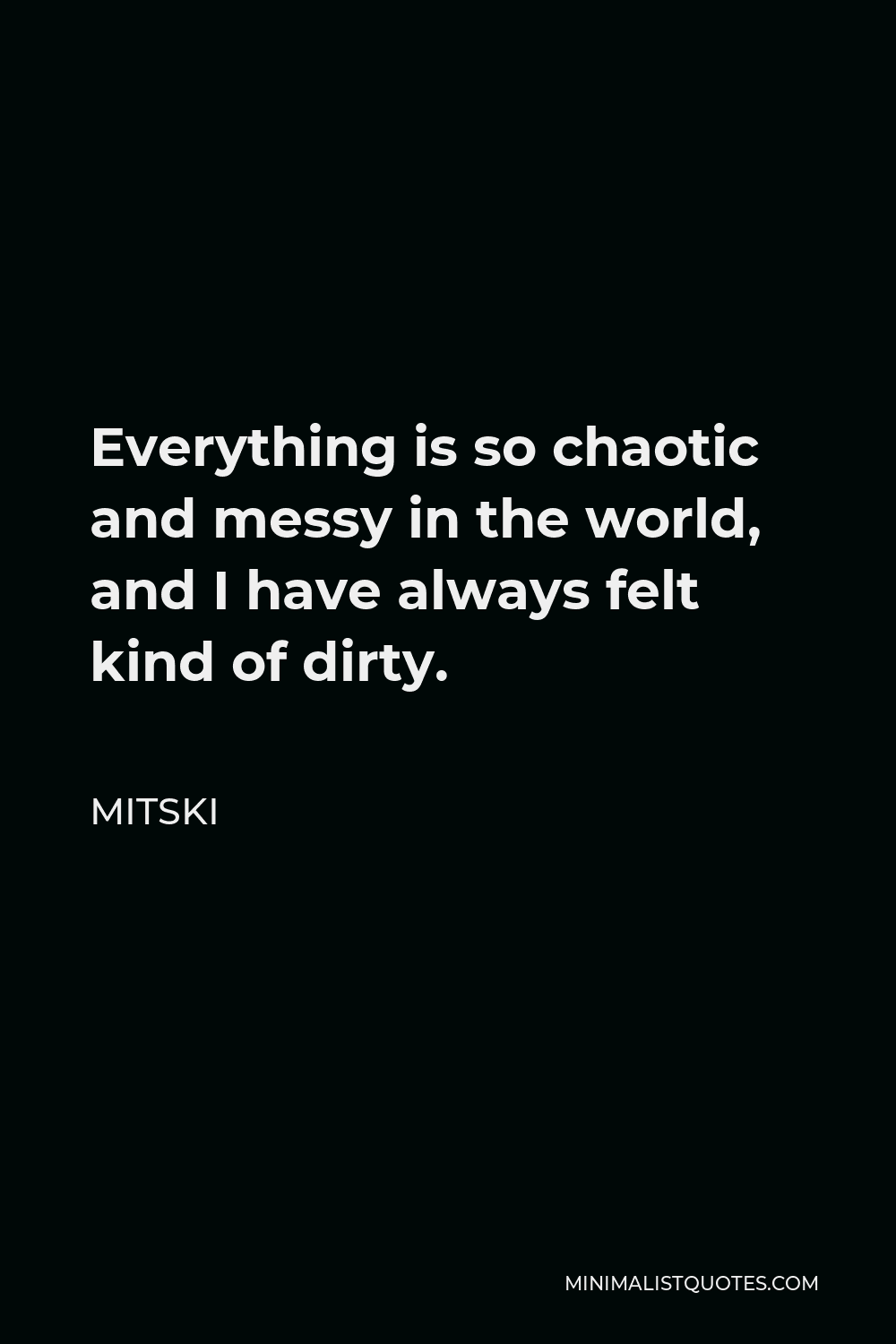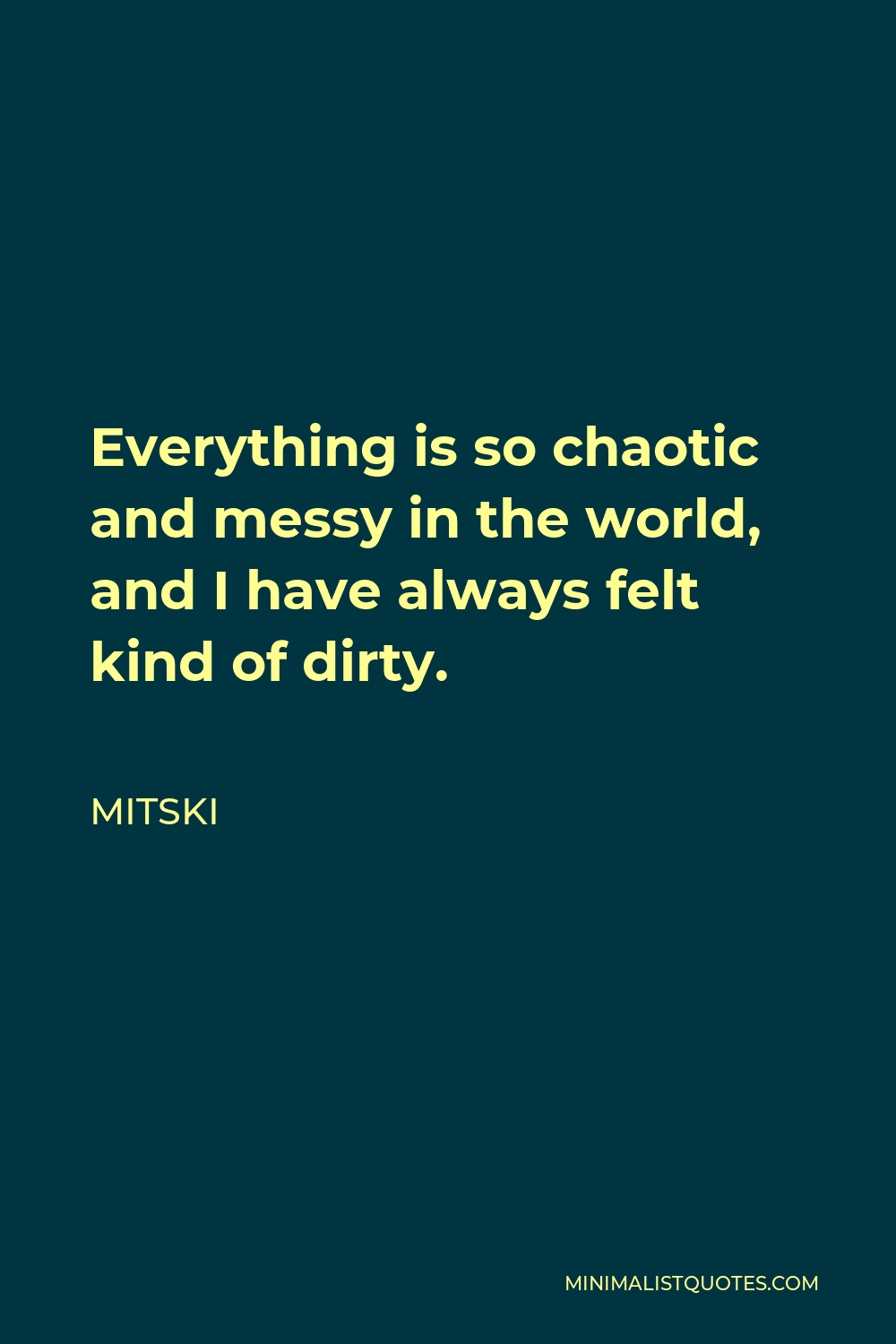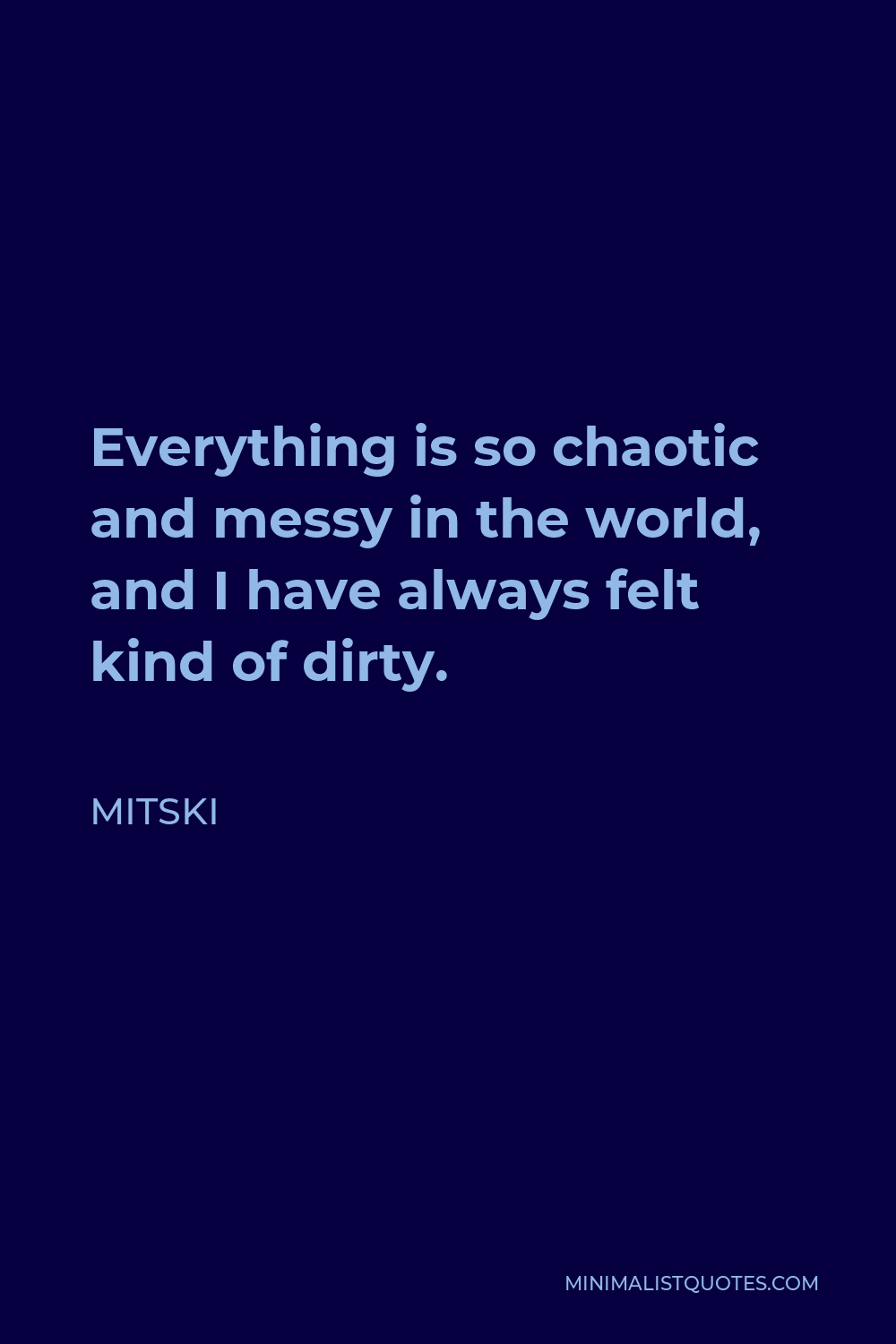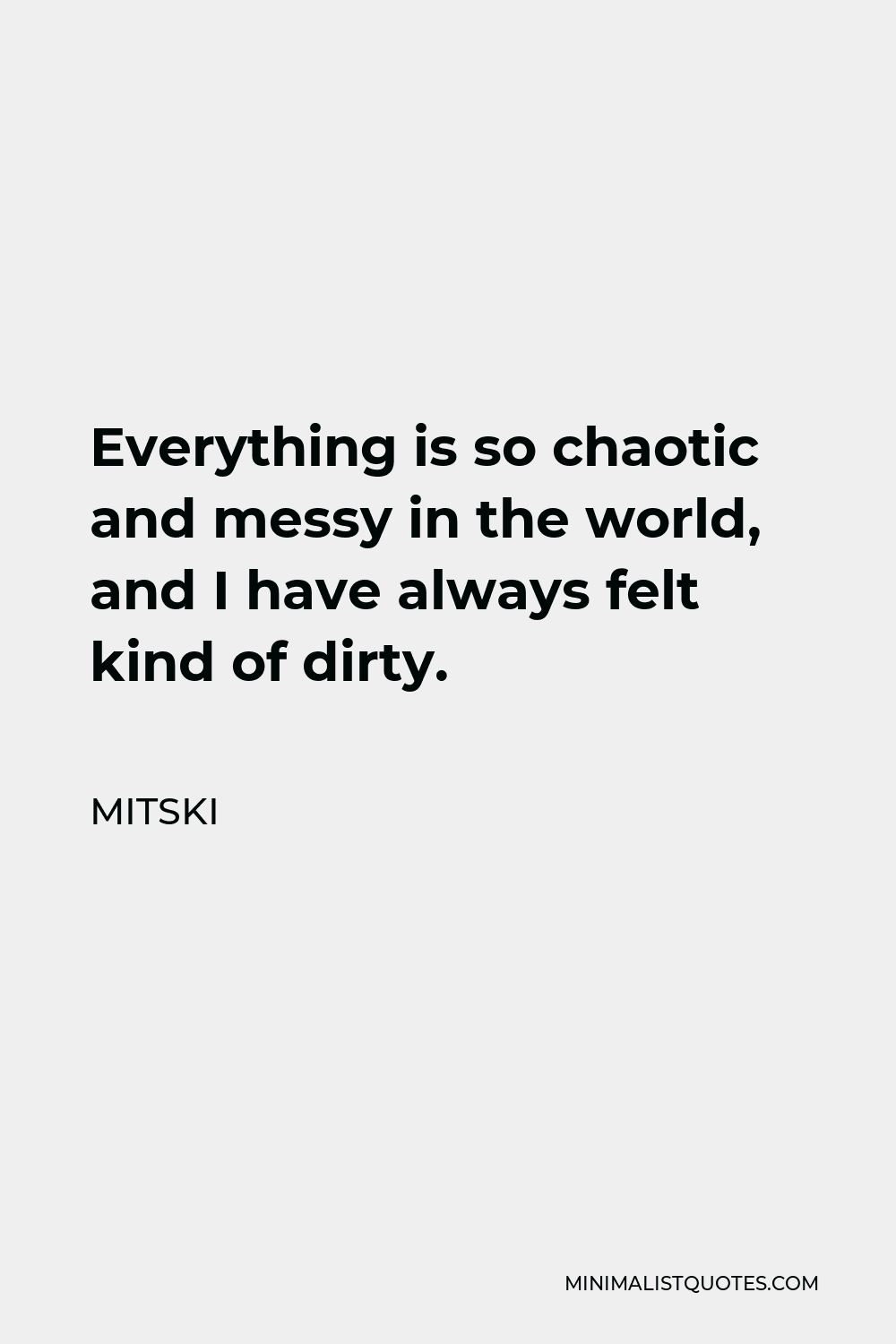Everything is so chaotic and messy in the world, and I have always felt kind of dirty.
MITSKIEverything is so chaotic and messy in the world, and I have always felt kind of dirty.
More Mitski Quotes
-





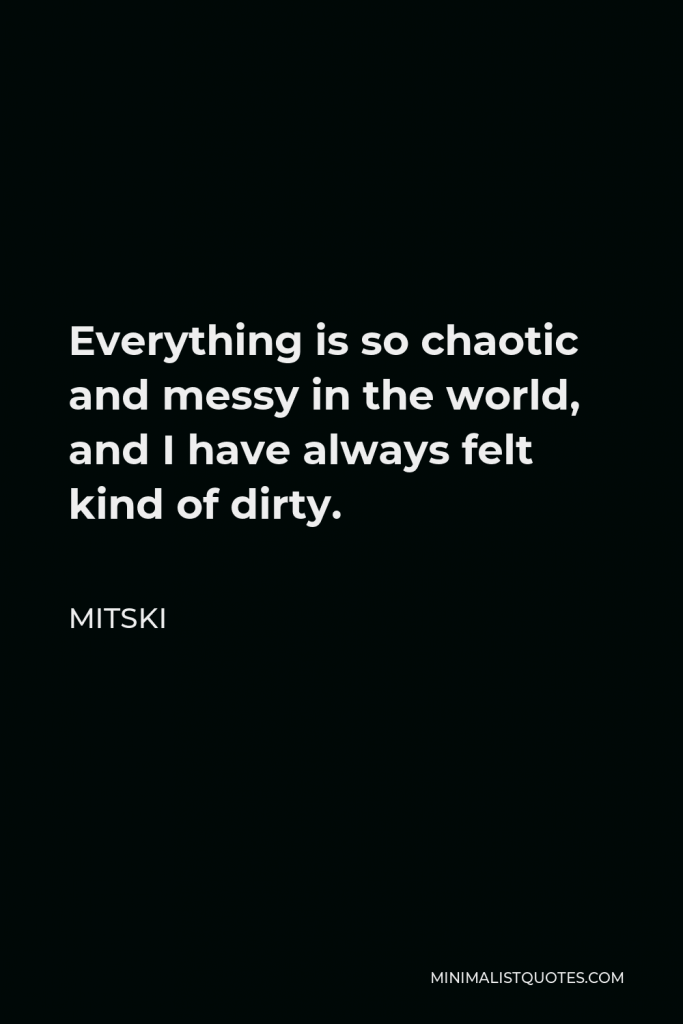

-





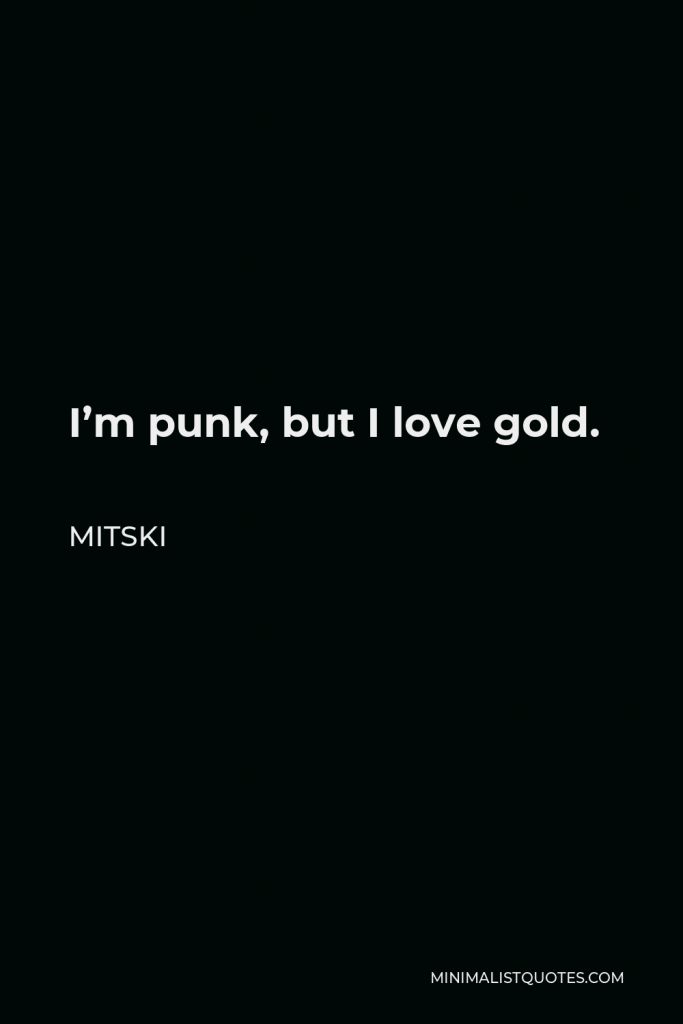

I’m punk, but I love gold.
MITSKI -





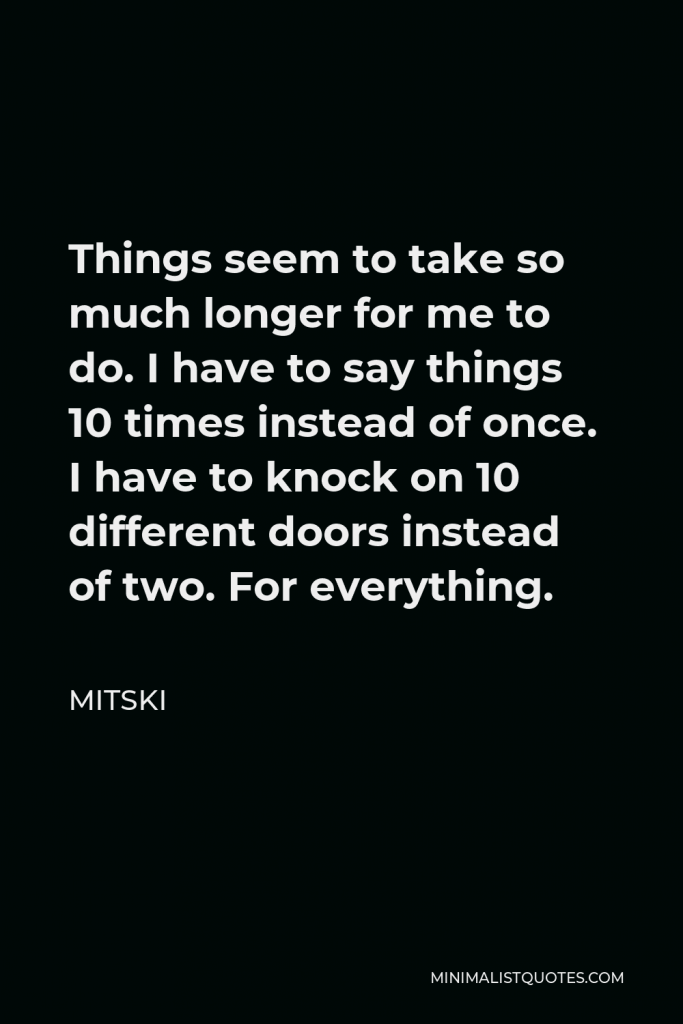

Things seem to take so much longer for me to do. I have to say things 10 times instead of once. I have to knock on 10 different doors instead of two. For everything.
MITSKI -





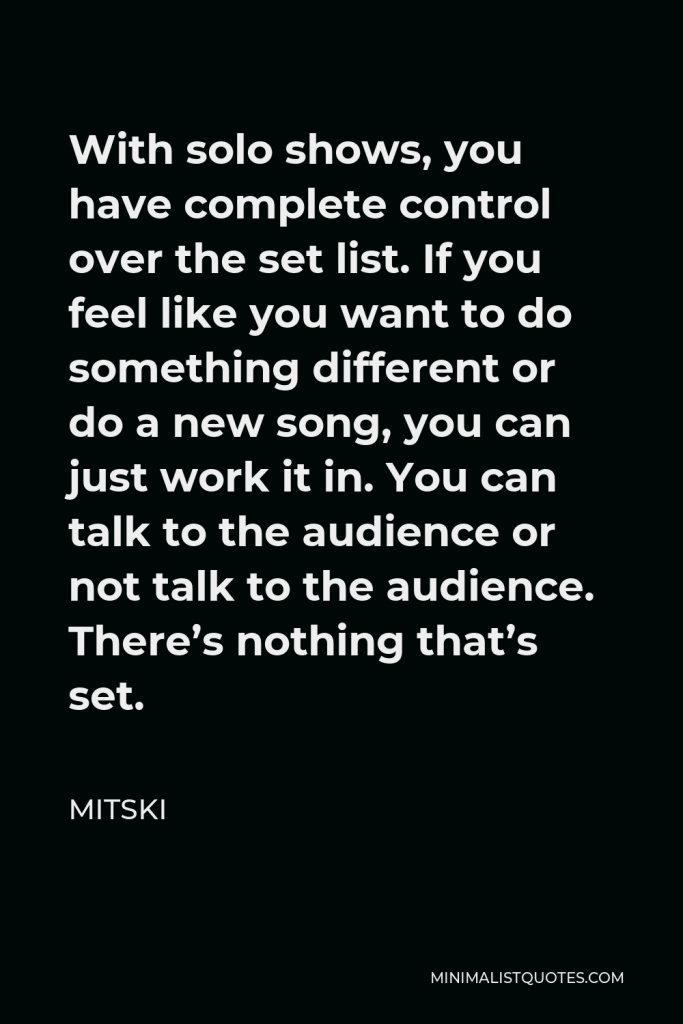

With solo shows, you have complete control over the set list. If you feel like you want to do something different or do a new song, you can just work it in. You can talk to the audience or not talk to the audience. There’s nothing that’s set.
MITSKI -





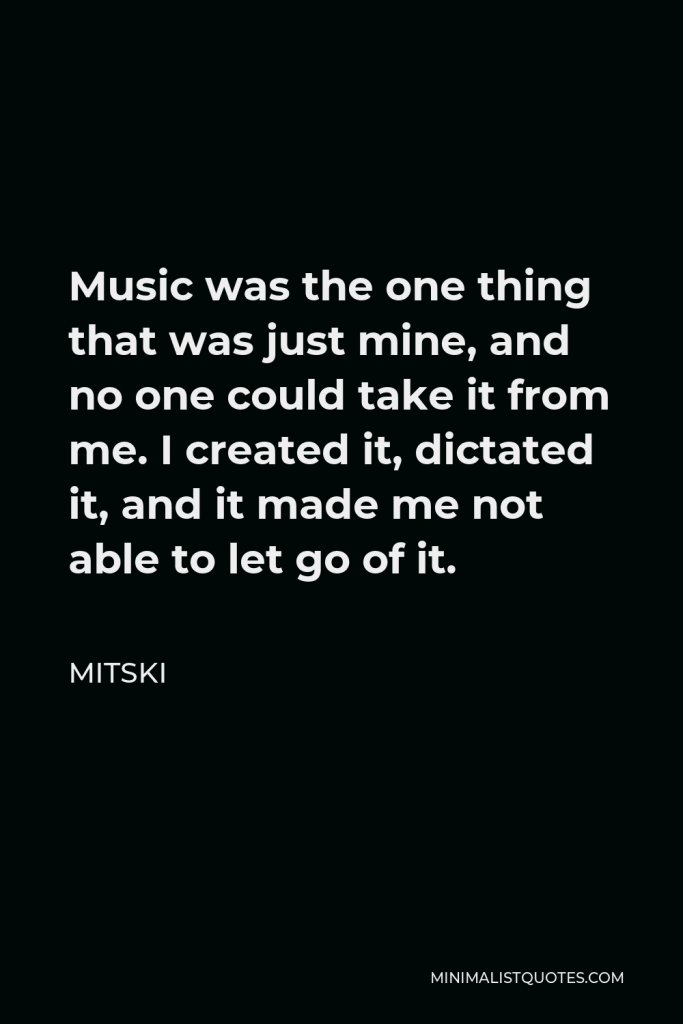

Music was the one thing that was just mine, and no one could take it from me. I created it, dictated it, and it made me not able to let go of it.
MITSKI -





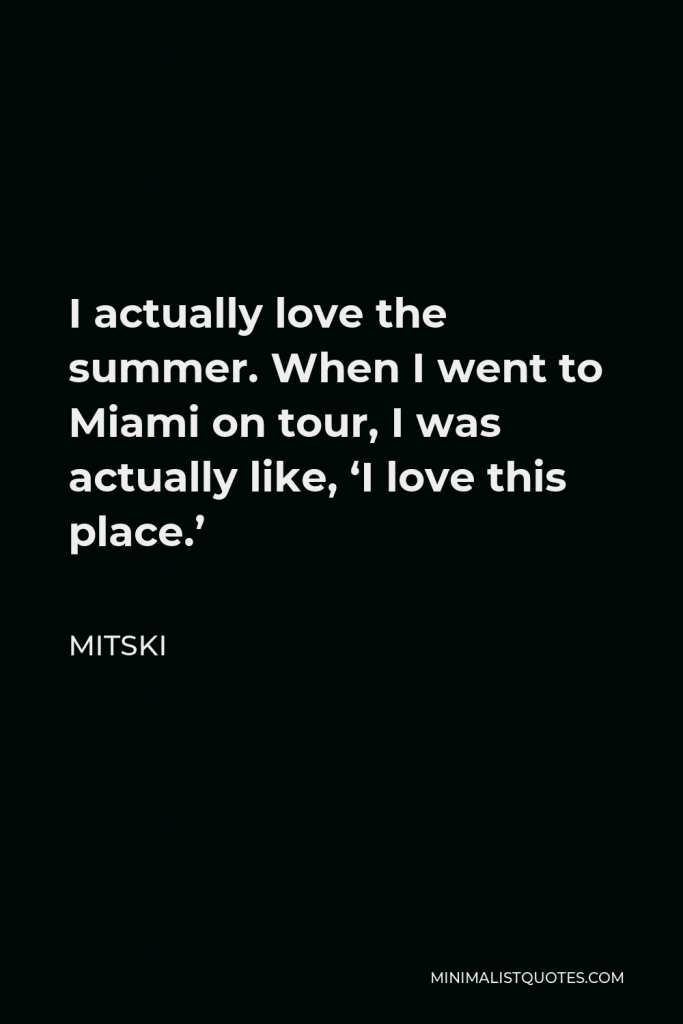

I actually love the summer. When I went to Miami on tour, I was actually like, ‘I love this place.’
MITSKI -





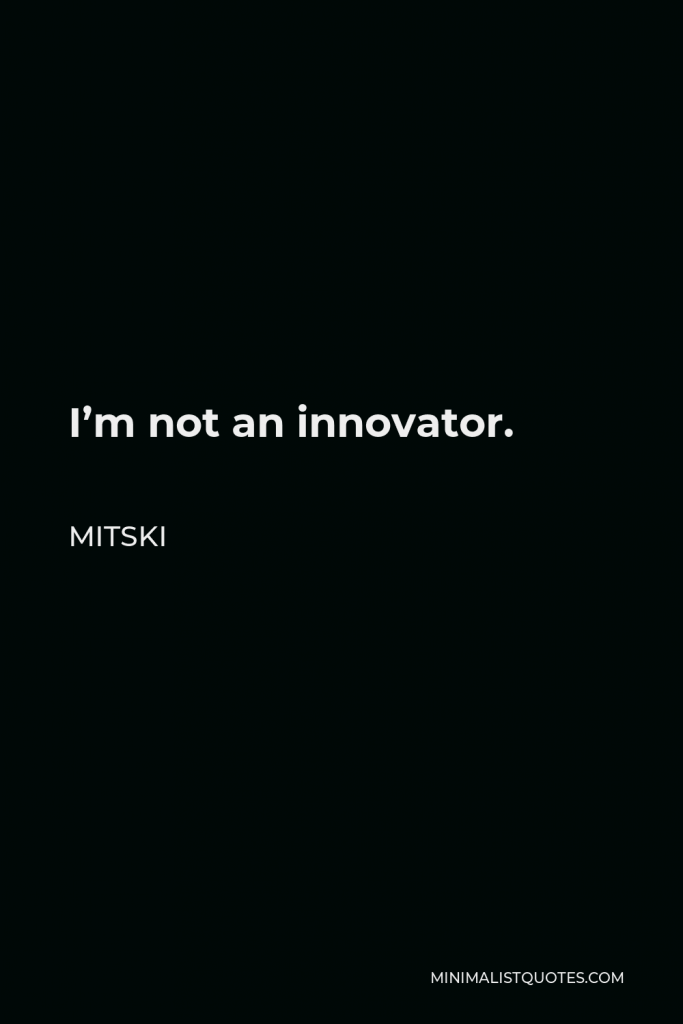

I’m not an innovator.
MITSKI -





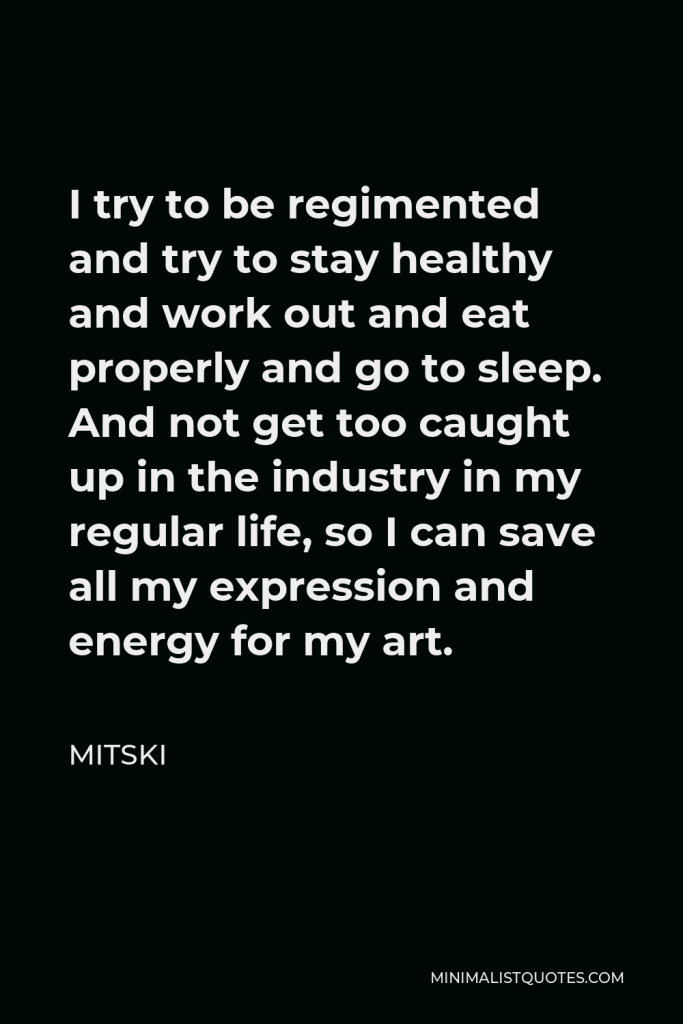

I try to be regimented and try to stay healthy and work out and eat properly and go to sleep. And not get too caught up in the industry in my regular life, so I can save all my expression and energy for my art.
MITSKI -





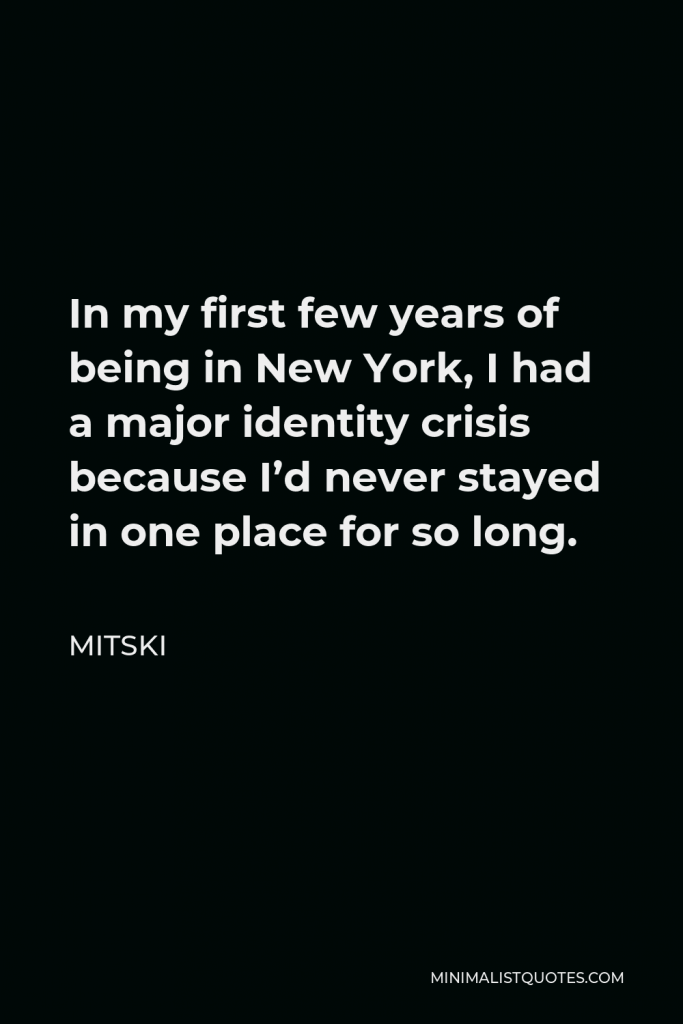

In my first few years of being in New York, I had a major identity crisis because I’d never stayed in one place for so long.
MITSKI -





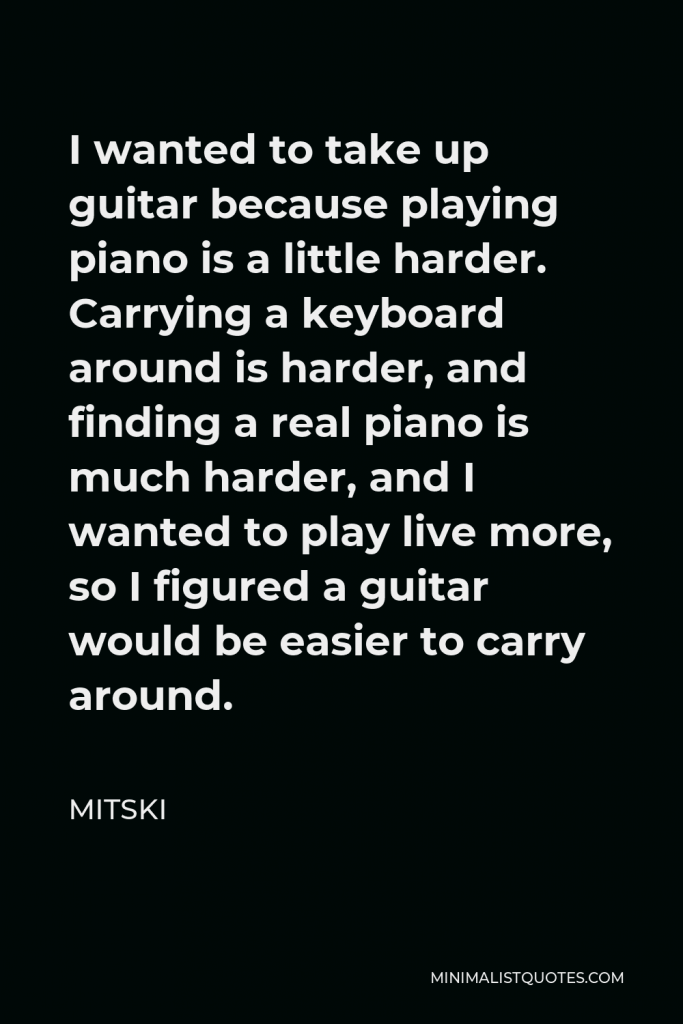

I wanted to take up guitar because playing piano is a little harder. Carrying a keyboard around is harder, and finding a real piano is much harder, and I wanted to play live more, so I figured a guitar would be easier to carry around.
MITSKI -





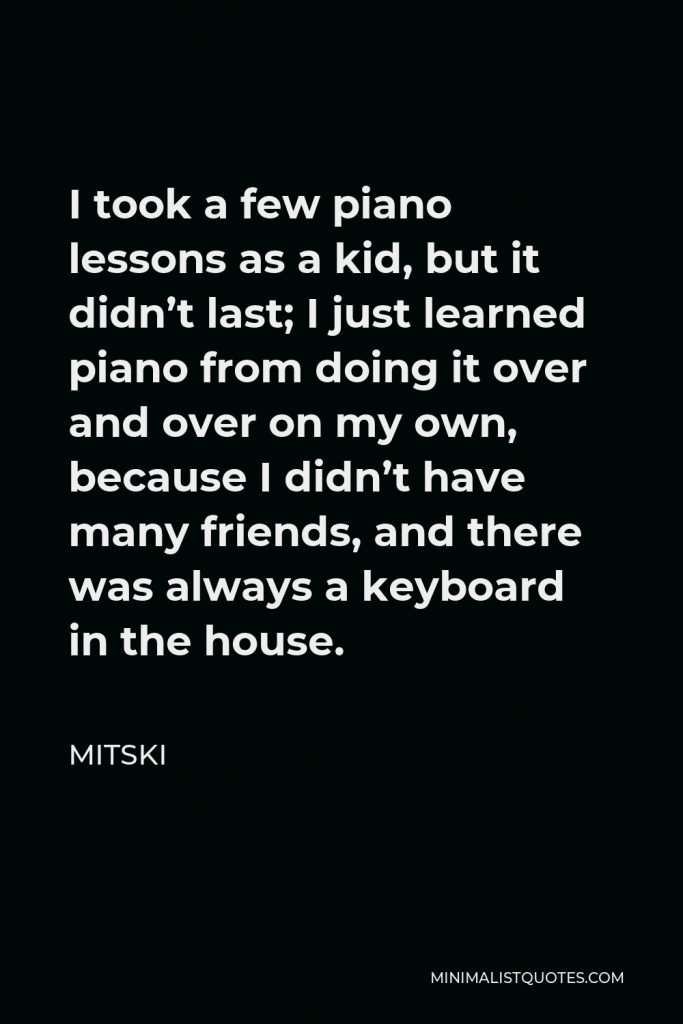

I took a few piano lessons as a kid, but it didn’t last; I just learned piano from doing it over and over on my own, because I didn’t have many friends, and there was always a keyboard in the house.
MITSKI -





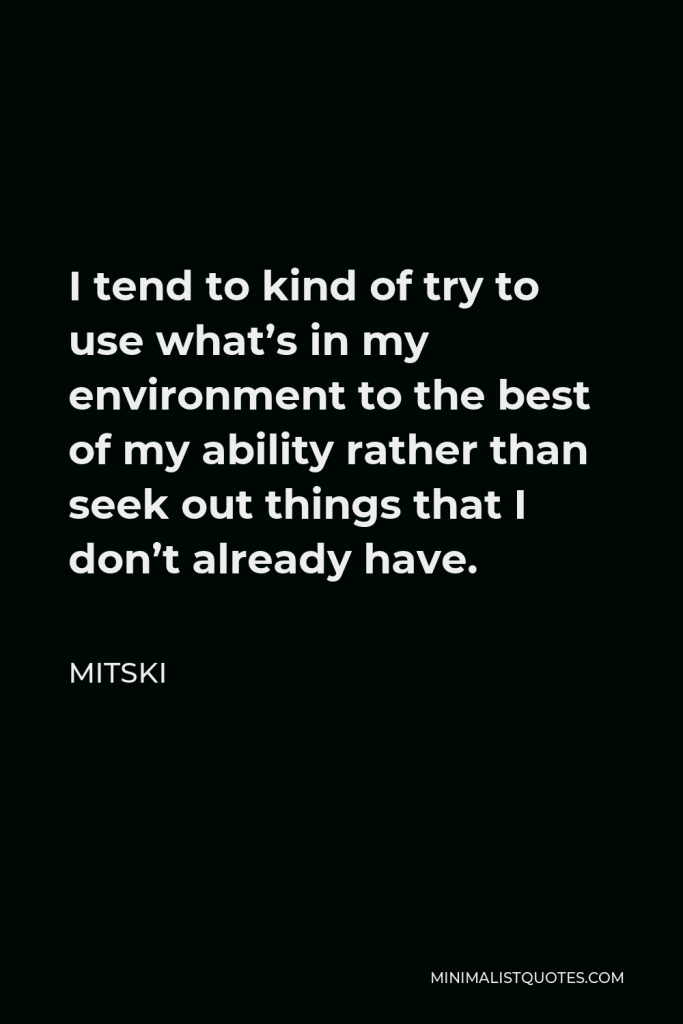

I tend to kind of try to use what’s in my environment to the best of my ability rather than seek out things that I don’t already have.
MITSKI -





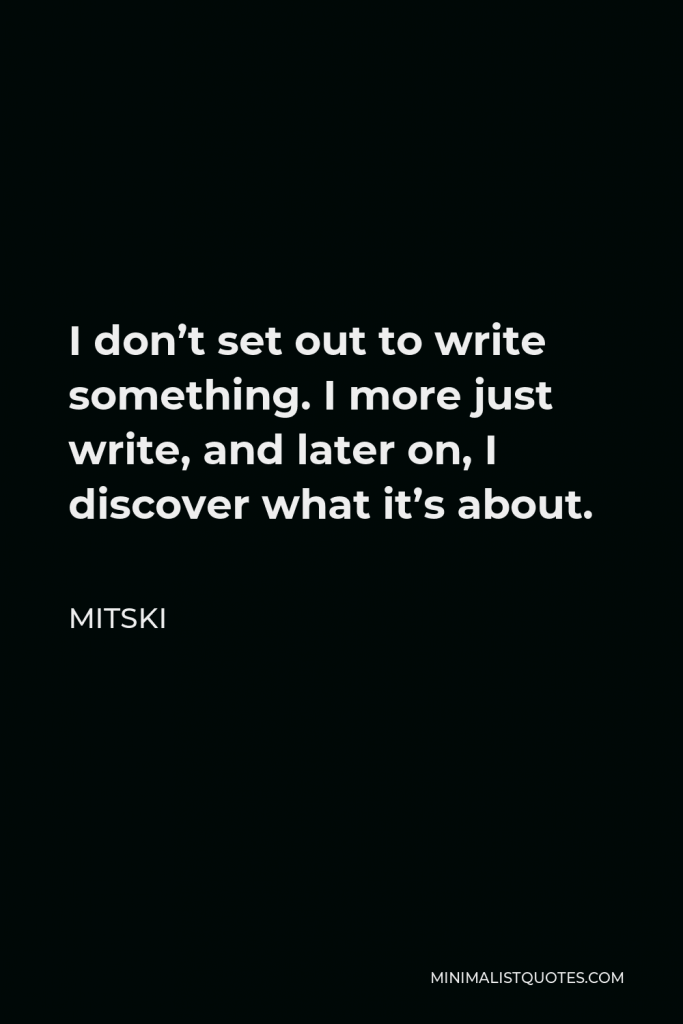

I don’t set out to write something. I more just write, and later on, I discover what it’s about.
MITSKI -





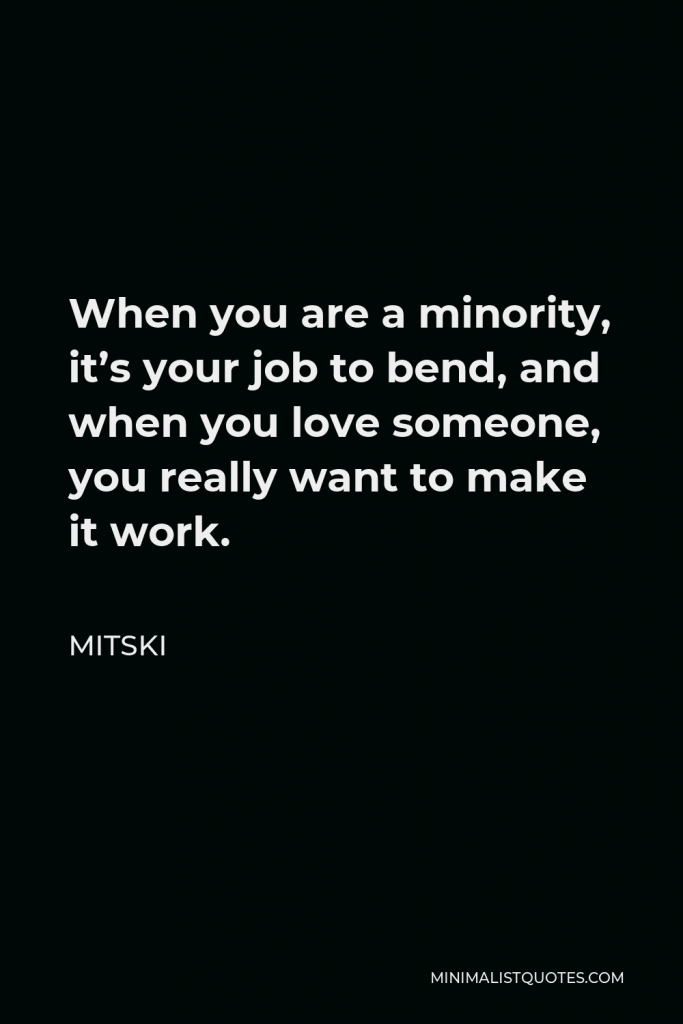

When you are a minority, it’s your job to bend, and when you love someone, you really want to make it work.
MITSKI -





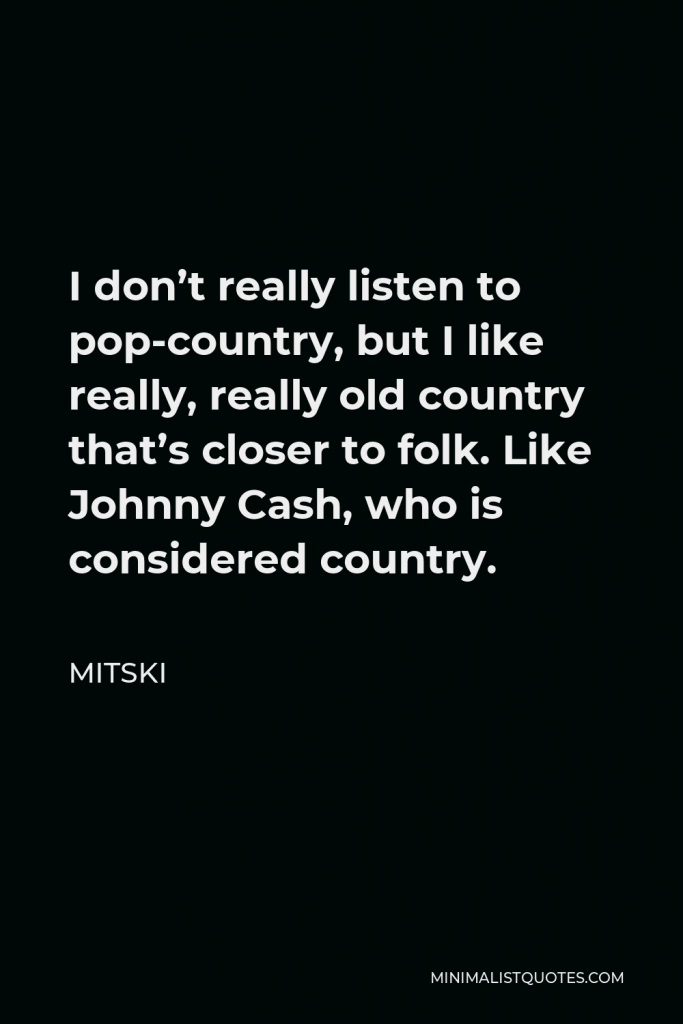

I don’t really listen to pop-country, but I like really, really old country that’s closer to folk. Like Johnny Cash, who is considered country.
MITSKI -





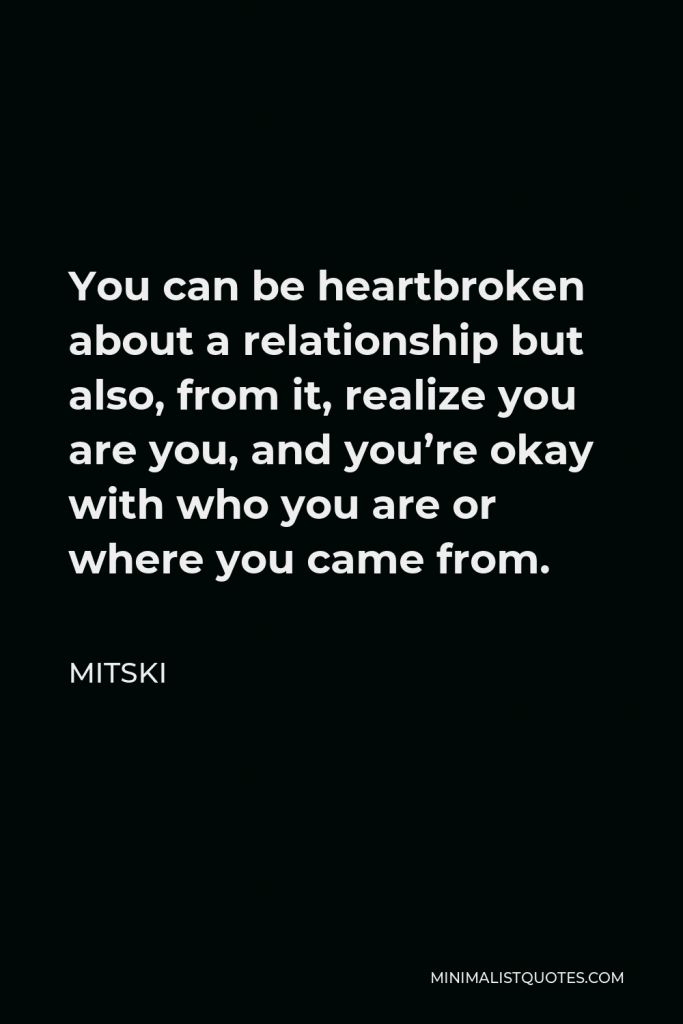

You can be heartbroken about a relationship but also, from it, realize you are you, and you’re okay with who you are or where you came from.
MITSKI
